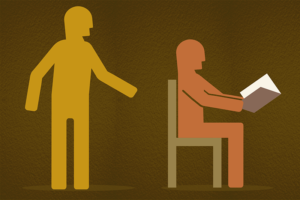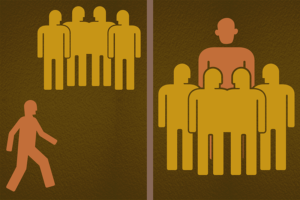
VII. The Social
-
 By
David Homan
By
David Homan

DO YOU NEED TO CONNECT TO OTHERS IN YOUR WORK AND LIFE?
DO YOU WANT TO BUILD STRONGER AND MORE DIVERSE RELATIONSHIPS?
Then it’s important to note that our personalities and circumstances frequently dictate not only what we need but also what others need from us. Everyone plays different roles in relationships, but we must watch ourselves falling into certain roles too frequently. Listening carefully to what is often asked of you might clarify what you may, when warranted, need in return.
It’s important to note that you can never hire or “buy” connections. Interactions come and go but important interactions are multifaceted and often long-term or recurring. If you push too hard or ask too much early on, you are defined by this and not your actual value to the other individual. This is why connecting smartly involves delving into what people need from you and why they ask it.
____
If you are the “Social,” then you swim, so to speak, in circles where your friends and family have influence. Your relationships go deeper than in the world of business, and your network often expands because of social situations. When people get to know you in contexts outside of their regular days, such as at a friends wedding, college reunion, or during a beach vacation, you develop a trust that, because it is external, gives you significant value.
The world is filled with people seeking leverage and desperately trying to make connections. You often feel these attempts are “fake” because they are transactional, and you would never jeopardize a friendship for something you don’t think a friend would want to know.
Your relationships are often the reason you are given opportunities in your career. Though you can’t “buy” these relationships, your role often in these business or philanthropy discussions centers on understanding the passions and desires of others, and whether what is being presented to you would resonate with people you know.
Once you identify these people, create opportunities for meetings:
*The most obvious—you can introduce your friends and peers to leverage important relationships
*You can build trust in challenging situations because you can “level” with people and move past emotional situations
*You can confirm people’s opinions of your friends, when they are up for opportunities with situations where they are not known or yet untested.
It’s important to keep in mind that you will often be asked to join every initiative for which you can make a connection. You cannot always do this, and so should weigh these opportunities carefully.
Relationships are formed because of your value to your friends and contacts. You may often feel that people only want or need you because of who you know and not for yourself, but when people do that, it is a tragic mistake, for connections are made on all levels.
I remember the first “social” connection I met. I couldn’t quite understand what she did, but for two years I ran into her at every party and event I went to until we were able to actually have a face to face. Turned out we had friends who went to the same college who knew each other, and she wanted to be a writer in her “other life.” I revealed my “other life” as a composer, and we realized that we could truly help each other and have remained friends and colleagues to to this day.

David Homan
Article Series:
Art Of Connecting


II. How to Elevate People’s Perceptions

